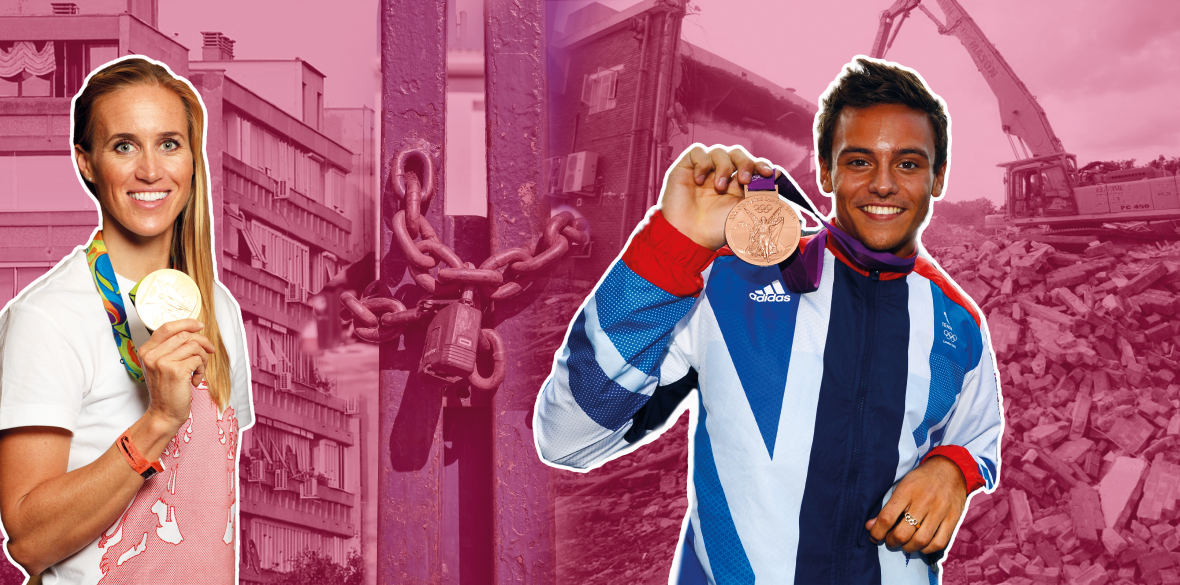This is the last article you can read this month
You can read more article this month
You can read more articles this month
Sorry your limit is up for this month
Reset on:
Please help support the Morning Star by subscribing here
NOW that the Olympic circus of money and power has moved on it’s a good time to reflect on what it achieved and remind ourselves that at its heart the Olympic “movement” is nothing to do with fairness, sporting equality or opportunity.
It’s about rich countries competing against other rich countries to gain most medals and use the Olympics to project power and prestige. In the Soviet era the Olympics became a proxy Cold War fight between the USSR and the United States. Tokyo reflected geopolitical shifts so that China now replaces Russia as the US’s sporting enemy.
The motto of the Olympics is Faster, Higher, Stronger, underpinned by the values of Excellence, Respect and Friendship, yet its troubled history shows how capital has eroded and tarnished all those high-minded concepts.
The history of the games is littered with corruption and bribery by host countries, sex verification scandals, doping by athletes vying for post-Olympic commercial sponsorship deals and the influence of advertisers cashing in on a global television audience.
Craving prestige, governments back bids to host the Olympics spending unsustainable sums of money in the process, building contracts are awarded on the basis of bribery, venues are often left unused afterwards, and vast debts left to be paid in many cases by the poorest host country citizens.
The poorest nations competing against the wealthiest simply don’t stand a chance. The sums of money involved are staggering and reveal the lack of fair competition for athletes.
For example the UK spent £345 million on supporting and training athletes for Tokyo. That’s almost £1 million per person. Put another way, it means each of the 65 medals cost about £5m. Figures obtained from UK Sport, the strategic body overseeing performance sport in the UK, detail the amount of money invested in each Olympic sport since the 2008 Beijing Olympics. The largest amounts of UK Sport money were spent on rowing (£27m), cycling (£26m) and athletics (£25m). Since 2008, a total of around £100m per year has been invested in 1,200 athletes competing across 47 different sports in both the Olympic and Paralympic Games.
The conventional Olympic medals table tends to reflect certain underlying factors, such as population size, economic might and past performance.
Large and rich countries typically lead the pack, while nations that take home a modest number of medals but punch well above their weight receive little attention.
Stefan Szymanski, professor of sports management at the University of Michigan, recently said there are some sports that are in effect closed to all but the most wealthy nations. “We have identified four sports where there is virtually no chance that anyone from a poor country can win a medal – equestrian, sailing, cycling and swimming,” says Prof Forrest. He points to a study suggesting there is one swimming pool for every six million people in Ethiopia.
Apart from the massive disparity in sport funding and medal success the other so-called benefit from the Olympics is the idea that it boosts sports participation, especially in the host countries where wall-to-wall media coverage saturates the public with inspiring events. The truth is it doesn’t.
The number of people playing sport in England has fallen since the 2012 London Olympics, despite the Games’ pledge to “inspire a generation.” Latest figures from Sport England reveal a drop in participation since the London 2012 Olympics.
Sport England data reveals the biggest decline is among people from ethnic minorities and economically deprived groups. Social exclusion, sales of school playing fields, unnecessary austerity cutbacks have closed the opportunity gap for the majority of aspiring athletes. Team GB in Tokyo was not representative of the diversity of Great Britain and Northern Ireland with 86 per cent white competitors. Too many sports are still dominated by white, suburban sportspeople and too few encouraging athletes from urban areas.
“There is a massive underrepresentation in elite sports from towns and cities,” said Chris Grant, one of British sport’s most senior black administrators. “Team GB, Paralympics GB and their support teams do not look and sound like the whole population, that is absurd, but I think the challenge is that people don’t think it’s absurd.”
More than a third of the sports funded through the talented athlete scholarship scheme (TASS) had zero athletes who were not white and he estimates between a third and half of all Olympic and Paralympic sports have never had an athlete from a minority ethnic background.
In the last decade about half of Team GB medallists attended a private school, while 6 per cent of serial medallists attended school in a city, compared with 39 per cent of the UK population.










